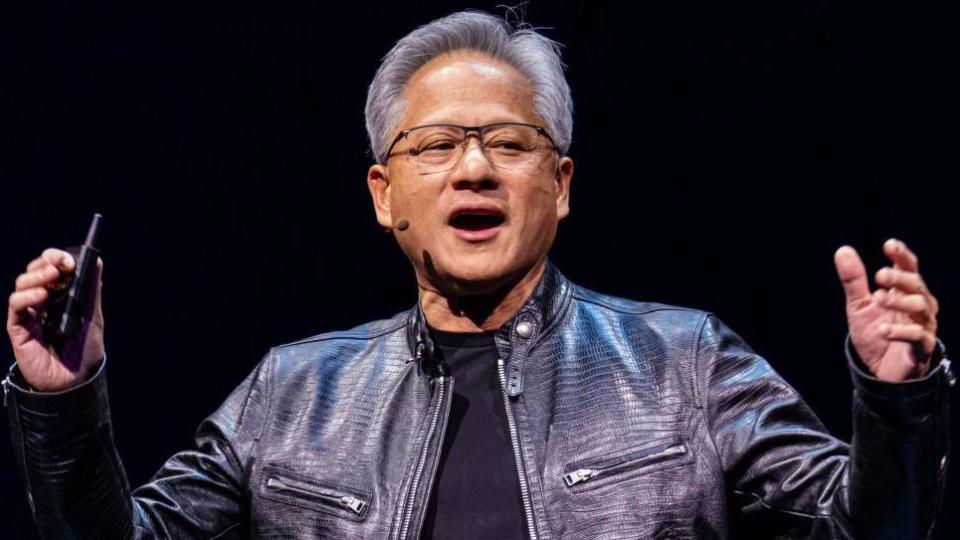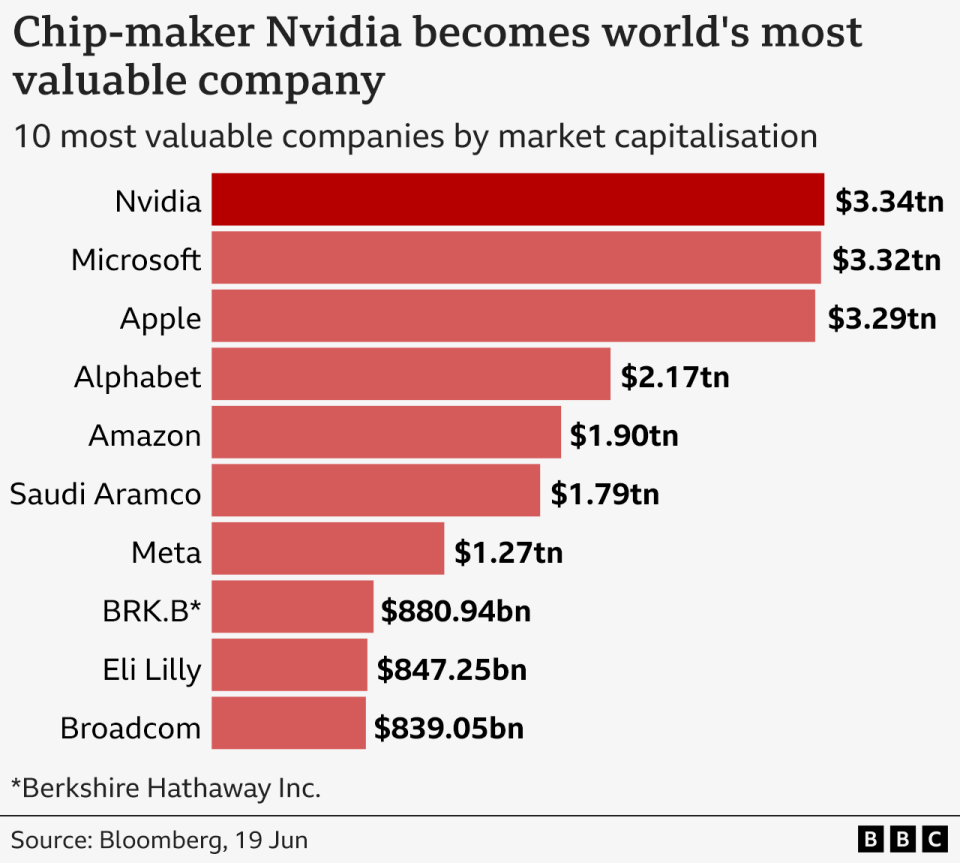AI frenzy makes Nvidia the world's most valuable company

Chip-maker Nvidia became the world’s most valuable company after its share price climbed to an all-time high on Tuesday.
It is now worth $3.34tn (£2.63tn), with the price having nearly doubled since the start of this year.
The stock ended the trading day at nearly $136, up 3.5%, making it more valuable than fellow tech giant Microsoft. It overtook Apple earlier this month.
The Californian company's meteoric rise has been fuelled by its dominance of what analysts call the "new gold or oil in the tech sector" - the chips needed for artificial intelligence (AI).
Speaking at an event in Copenhagen, Chris Penrose, global head of business development for telco at Nvidia, predicted further growth in the sector.
“The generative AI journey is really transforming businesses and telcos around the world," he said.
“We’re just at the beginning.”
Analysts Wedbush Securities agreed.
"We believe over the next year the race to $4 trillion market cap in tech will be front and centre between Nvidia, Apple, and Microsoft," it said in a note earlier this week.
Other commentators though have questioned whether there will be big future gains, given the increasing competition Nvidia faces.
Rise and rise
What is not in doubt though is how spectacularly it has grown.
Eight years ago, the stock was worth less than 1% of its current price.
Back then, Nvidia's value came from its competition with rival AMD, in a race to make the best graphics cards.
In recent years though it has benefited from a boom in demand for chips that train and run generative AI models, the most well known of which being OpenAI's ChatGPT.
The firm also benefitted significantly from a rush to mine Bitcoin in 2020, which saw a sharp uptick in sales of its graphics cards.
The rise and rise of the tech giant has been mirrored by the increasingly high profile of its boss, Jensen Huang.
Meta boss Mark Zuckerberg even called the 61-year-old electrical engineer - known for his signature leather jacket - the "Taylor Swift of tech" for the celebrity status he has achieved.
He's become well-known thanks in part to his popularity in his native Taiwan, where fans treat him as a rock star - posing for photos and even asking him to sign body parts.
Competition among AI developers is fierce. Microsoft, Google-owner Alphabet, Meta and Apple are just some of the tech heavyweights battling to create a world-beating product.
This competition benefits Nvidia, which as well as developing AI tech of its own, dominates the vast majority of the AI chip market.

Nvidia’s sales and profit figures have surpassed many analyst expectations in recent years.
In May, after its latest set of financial results were published, Quilter Cheviot technology analyst Ben Barringer said the company had "once again cleared a very high hurdle".
"Demand is showing no signs of switching off either," he added.
However, a minority are more cautious.
In February, Barclays credit analyst Sandeep Gupta argued that Nvidia’s large market share would be hard to maintain given the increasing number of rivals and questioned how Nvidia’s customers would monetise AI software.

 Yahoo Finance
Yahoo Finance 